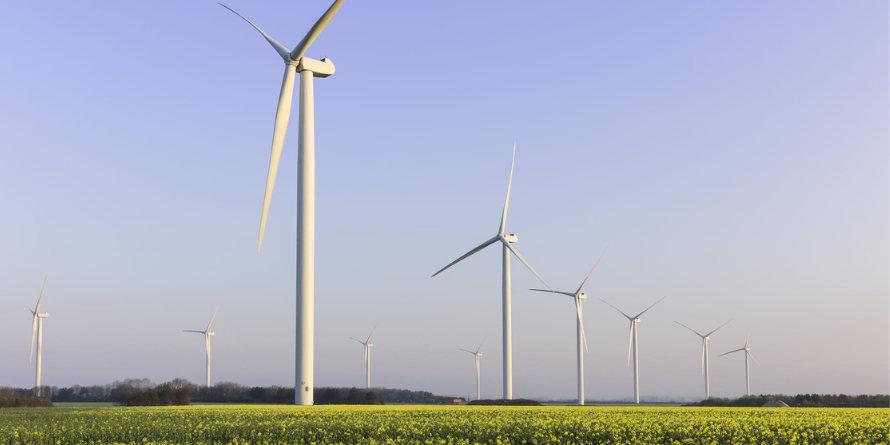A reset of the planning system across England is needed to build a net zero world, according to a new report.
The Institute for Public Policy Research (IPPR) found that under the current rate of development it would take 4,700 years for England to reach the onshore wind capacity called for by government advisers.
The IPPR said progress in England was stalled in 2015 when planning laws were changed to make it more difficult to gain permission for new onshore wind turbines – in what was effectively a ban.
Since then it said only 17 new onshore wind farms have been approved, generating just 6.7 megawatts of power - equivalent to just 0.02 per cent of the on-shore total needed in England based on National Grid estimates. The IPPR report calls for restrictions on onshore wind and solar power to be reduced and for local authorities to be compelled to identify land suitable for onshore wind and solar generation.
It argues that local authorities should be compelled to draw up detailed plans for development in their areas that integrate environmental targets, to provide greater certainty.
Luke Murphy, IPPR associate director for energy, climate, housing, and infrastructure, said:
“The current planning system in England is not remotely fit for purpose to build a net zero world, restore nature, or meet housing need. At current build rates, we’re as far from delivering the onshore wind we need for energy security as we are from the start of construction of Stonehenge in 2,500 BC. “
The energy industry is increasing its investment in cyber security but significant gaps remain, according to a new report.
Six out of ten energy professionals surveyed by DNV said their organisation is boosting spending amid growing geopolitical tensions.
However, they warn that budgets are still too low to safeguard safety-critical systems.
Two thirds (64%) believe that their organisation’s infrastructure is now more vulnerable to cyber threats than ever.
Ditlev Engel, CEO, Energy Systems at DNV, said cyber security in the industry is critical for acceleration of the energy transition.
Read more

 United States
United States Australia
Australia





